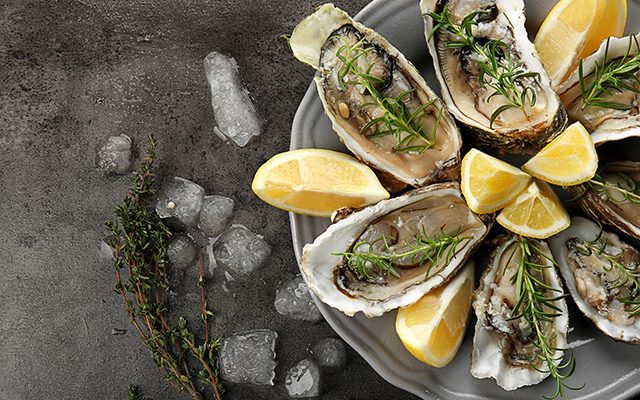Mussels, oysters have highest levels of microplastic contamination among seafood

(Natural News) Those mussels, oysters and scallops on your plate may be harboring a secret ingredient: microplastics. A recent study by researchers from Hull York Medical School and the University of Hull in the U.K. found that mollusks contain the highest concentration of microplastics – microscopic bits of plastic – out of all seafood.
Published in the journal Environmental Health Perspectives, the study takes a look at the impact of the global microplastic pollution problem not just on the world’s oceans but also on human health.
Experts still do not fully understand the effects of microplastics on the human body. But according to Evangelos Danopoulos, the study’s lead author and a postgraduate student at Hull York Medical School, quantifying the amount of microplastics humans are ingesting is a critical step to understanding this.
Microplastic contamination highest in mollusks
For their research, Danopoulos and his colleagues studied more than 50 reports on microplastic contamination in both fish and shellfish between 2014 and 2020. Their data showed that microplastic content was zero to 10.5 microplastics per gram (MPs/g) in mollusks, 0.1–8.6 MPs/g in crustaceans and zero to 2.9 MPs/g in fish.
In addition, the latest consumption data in their research showed that China, Canada, Japan and the U.S. are some of the largest consumers of mollusks, and that mollusks off the coast of Asia were the most contaminated. This was likely the result of greater marine plastic pollution in the region.
According to Danopoulos, the next step now is to determine which body parts of the mollusks are accumulating microplastics since these industrial products have been found previously in various organs, including the liver and intestines. Therefore, more studies are needed before scientists can provide guidelines about eating seafood.
Experts estimate that plastic waste generated worldwide could rise to 155–265 metric tons per year by 2060. If that plastic ends up in bodies of water, it might accumulate as microplastic inside fish and shellfish. Plastic could then accumulate inside human bodies upon the consumption of contaminated fish and shellfish.
But contaminated seafood is just one of several sources of microplastic in the environment. Gavin Gibbons, the director of media relations of the National Fisheries Institute, said humans end up ingesting more microplastics from breathing than from consuming contaminated seafood.
Nonetheless, Gibbons said that the findings of Danopoulos and his colleagues are reason enough for legislators and the seafood industry to pay more attention to microplastics as an emerging contaminant.
Possible effects of microplastics on human health
Scientists have found microplastic pollution in the highest and lowest points on Earth. Yet little is known about the effects of microplastics on human health. So far, researchers have turned to studies on microplastic contamination in marine animals for clues as to what microplastics can do inside the human body.
According to a study published recently in Science of The Total Environment, microplastic ingestion could lead to reduced food consumption if the plastic particles are retained in the gastrointestinal tract. Microplastics along the gastrointestinal tract could also later obstruct the intestines and eventually result in death.
Due to their microscopic size, microplastics could also permeate organ barriers and enter the bloodstream. The plastic particles could then cause blood clots or leach toxic chemicals that trigger inflammation.









